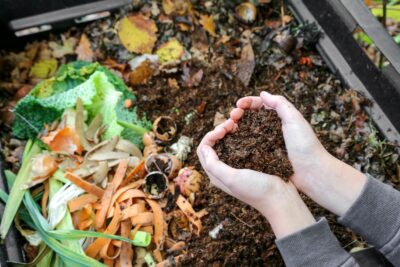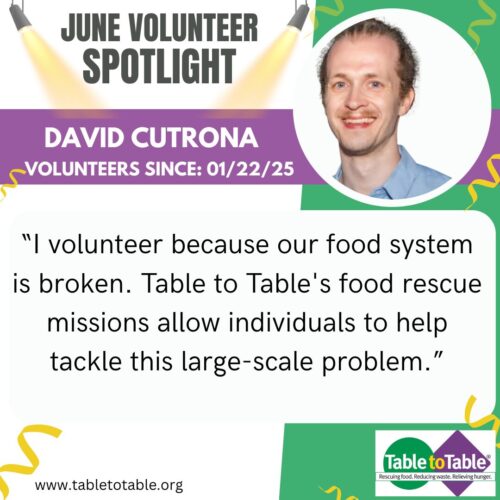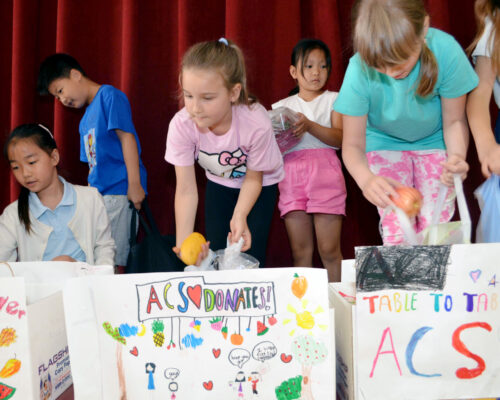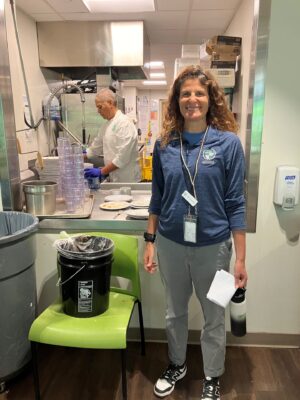
Blog
Reducing Food Waste is a Powerful Tool for Fighting Climate Change
It may come as a surprise, but reducing food waste does a lot more than just ensure more food for people who need it. Food waste and loss reduction is actually a powerful tool in the fight against climate change. It’s an issue that Table to Table has embraced as a core part of our mission, focusing on rescuing perfectly good food that would otherwise be discarded in landfills and redirecting it to people facing food insecurity. This approach not only helps address hunger but also mitigates environmental harm. The best part is that anyone, anywhere can make a difference by simply reducing the amount of food they waste.
The entire lifecycle of food—from growing and packaging to distributing, storing, and ultimately throwing it away—accounts for up to one-third of global greenhouse gas emissions. Within this, food loss and waste alone contribute to a staggering 10% of those emissions. By tackling this issue, we have a chance to significantly reduce our environmental footprint.
A particularly concerning aspect of food waste is the methane it produces when decomposing in landfills. Methane is a potent greenhouse gas that has a much stronger impact on global warming than carbon dioxide. However, methane breaks down relatively quickly in the atmosphere, usually within about 12 years – a much shorter time span than carbon dioxide. This means that reducing methane emissions can have a rapid and noticeable cooling effect on the planet, providing a short-term solution while we continue to work on longer-term climate strategies.
The global community has recognized methane as an urgent priority, describing it as an “emergency brake” to slow the effects of climate change. By addressing methane emissions, we can quickly lower atmospheric greenhouse gases and reduce short-term warming. Since food degrading in landfills is responsible for an estimated 14% of U.S. methane emissions, reducing food waste is an essential, immediate step to create a more sustainable and resilient future for our planet.
ReFED, a U.S.-based nonprofit that works to advance solutions to food waste, released new data with support from the Global Methane Hub that reveals the methane hotspots for uneaten or “surplus” food in the U.S., and highlights solutions that can reduce waste and slash methane emissions. Learn more here: ReFED Blog.
Since starting our food rescue mission in 1999, Table to Table has prevented more than 544 metric tons of methane gas from being released into the atmosphere. You can be part of the solution right here in New Jersey! To help reduce food waste in your community, you can claim a food rescue using our I-Rescue app or volunteer.
Editor’s note: This blog was written by Valerie Jacklin, who oversees Research & Analytics for Table to Table.

More From News
June 30, 2025
David Cutrona: Volunteer Spotlight
June 24, 2025
Elementary School Students Honored
REAL PEOPLE, REAL STORIES.
June 19, 2025
Leonia Students Donate Hundreds of Pounds of Produce
Every little bit counts. Second-graders at Anna C. Scott Elementary School in Leonia held a fresh produce drive for Table to Table...
May 23, 2025
Saddle River Inn Named Among the 25 Most Essential Restaurants in North Jersey
Take your best shot at fighting hunger. Join us for the 9th Annual Table to Table Golf Classic at the Preakness Hills...
May 22, 2025
Chatham Day School Runs Food Audit with Table to Table
Hats off to our friends at Chatham Day School, who participated in a food audit led by our staff. At lunchtime, students...













